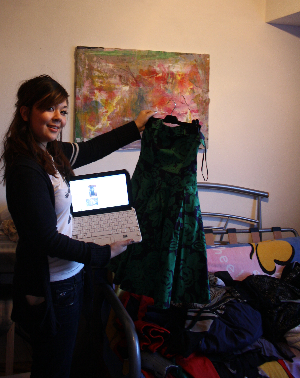A local rehabilitation group run by NHS South East Essex is looking for volunteers to help those who have suffered a stroke to improve their communication.
The Speech and Language Therapy Team runs three weekly ‘Talking Matters’ groups across south east Essex:
- Shoebury Monday 11am-1pm in Salvation Army Hall Frobisher Way
- Rayleigh Thursday 11am-1pm Holy Trinity Church High Street
- Canvey Tuesday 2pm-4pm Our Lady of Canvey Long Road Canvey
The sessions help those with communication difficulties following a stroke, encouraging people to communicate using gestures, writing and drawing, as well as speech, in a safe and supported environment.
The groups aims to enable people to gain confidence in using techniques and skills learnt during individual therapy in a group setting.
The sessions are split into two parts. The first half is discussion based, and people bring photos and memorabilia to talk about, as well as chatting about what they have each been up to or seen on TV etc. During the second half, members play games such as dominoes and cards, or word based games such as Chatterbox.
The groups are organised and run by Speech and Language Therapy staff, but need volunteers to support and facilitate group members to participate to the best of their ability. Regular training is offered to all volunteers, alongside weekly support during the groups. Volunteers are also involved in arranging social outings for the groups, such as afternoon tea and a Christmas meal, and managing the collection of money for refreshments and outings.
Those interested in volunteering or those who would like more information about being referred into the service should contact the Adult Speech and Language Therapy Team at Hadleigh Clinic on 01702 578609.
People interested in joining the ‘Talking Matters’ groups have to be referred to the Speech and Language Therapy Team, and must have communication problems following a stroke. They would then be assessed by a Speech and Language Therapist and informed about the groups, as appropriate.
Anna Smith, a speech and language therapist working for NHS South East Essex Community Healthcare said: “The groups are a great opportunity for people with difficulties communicating following a stroke to get out, meet others, gain confidence and practise their speech. We would be delighted to hear from anyone who feels able to help by volunteering for a couple of hours a week.”
Linda Hoile a regular volunteer at the ‘Talking Matters’ group said: “Being a volunteer is very rewarding. You meet many interesting people and learn a great deal from them”.
Iris Cook another regular volunteer at the ‘Talking Matters’ group said: “When I had my stroke my confidence was knocked for six, I attended the group and it gave me some of my confidence back and allowed me to meet other with communication problems. The speech and language therapy staff running the group recognised I had further potential and asked me to train as a volunteer. I never thought this could be possible, but because of what I had got out of the group, I wanted to give something back and decided to trust their expertise and gave it a go. Now I am a
trained volunteer and it’s wonderful seeing others where I once was with their confidence and communication improving weekly”.
Brenda Bache a regular group member of both Rayleigh and Shoebury group said: “It gives me friendship and helps me communicate confidently and when others speak about their problems it puts mine into perspective”.
Sylvia Gargan a regular group member of the Rayleigh group said: “If I could not come I’d be unhappy. I enjoy it and being able to know all the other people make me smile and laugh, which is good for me”.
About Us: NHS South East Essex is the public name for South East Essex Primary Care Trust (PCT). It commissions a range of health services for around 343,000 people, working across almost 100 square miles, covering Castle Point, Rochford and Southend-on-Sea. It is responsible for funding GPs and medical prescriptions, and commissions hospital, mental health and community-based services from NHS trusts and the private sector.



